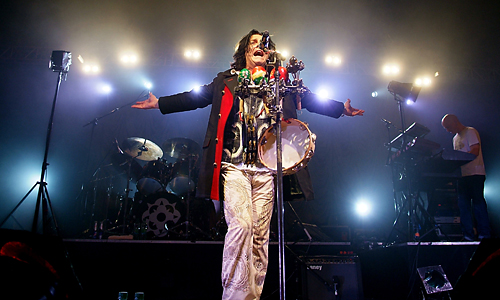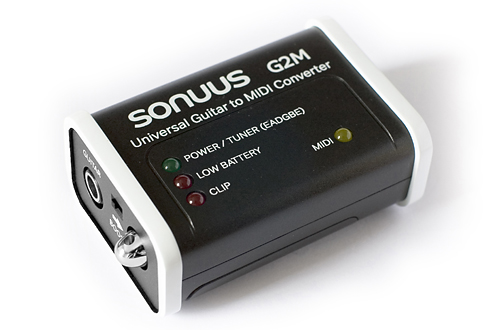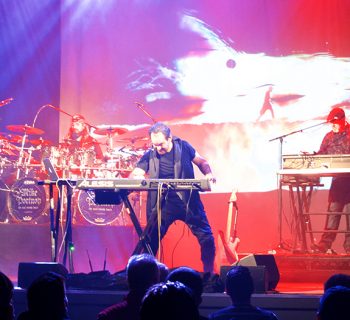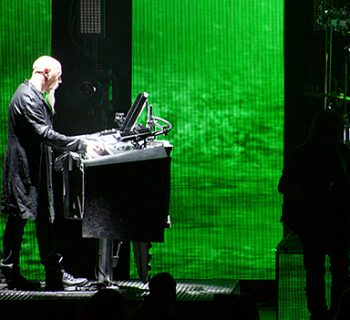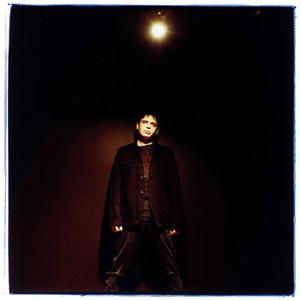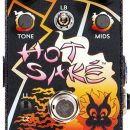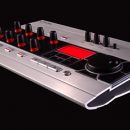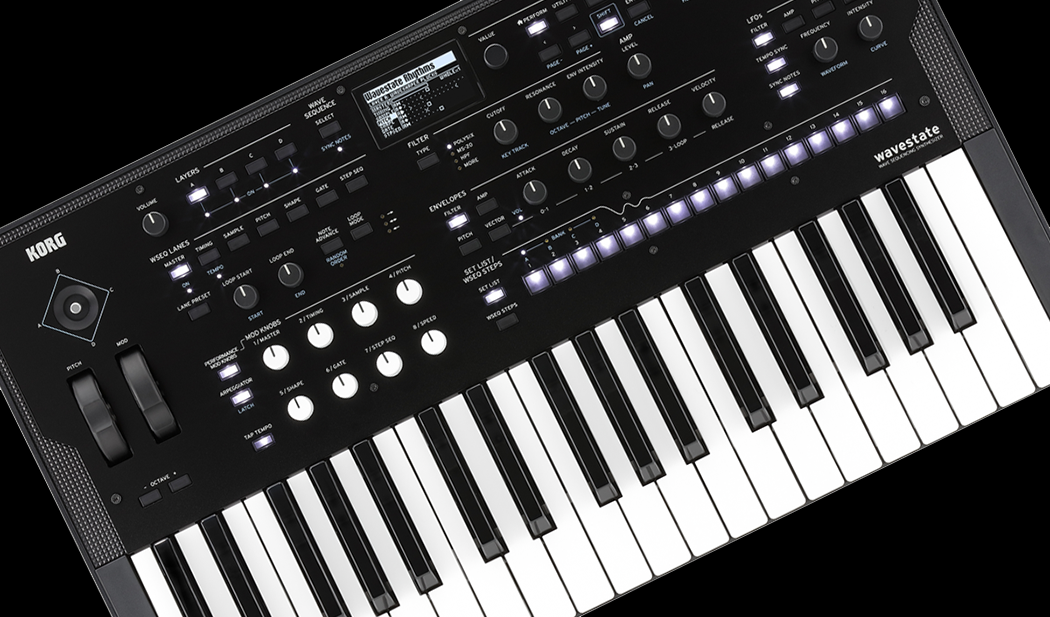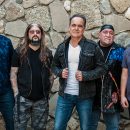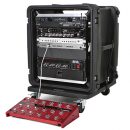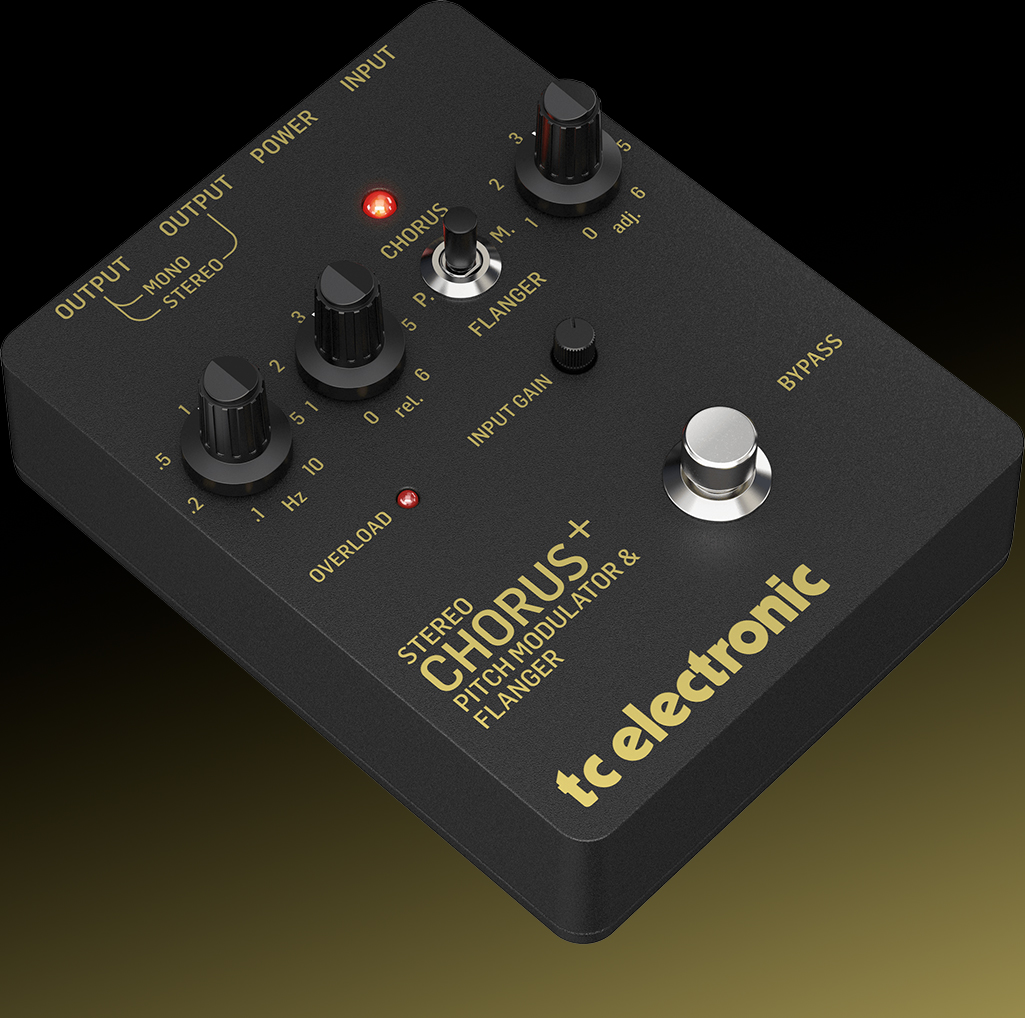I can’t stop sounding like me when I open my mouth
MPc: It’s been really hard to identify where Happiness is the Road falls in the broad catalog of Marillion music. Parts of it take me back to Holidays in Eden and Brave. But then I’m also getting a vibe that reminds me of Pink Floyd’s The Division Bell.
SH: Really?
MPc: Yeah. And then there’s an obvious Beatles and Beach Boys vocal thing happening, as well as with some of the musical parts.
SH: Oh, we’re good with that, definitely. [laughs]
MPc: It seems to me that you’ve managed to make a record that’s both pop and progressive at the same time.
SH: Well, it was probably just a mistake. [laughs] I mean, the way we work here is we jam. That’s how we write. And we’ve always worked like that. And the good thing about writing that way, although it’s a very slow process, because, I mean… we jam for weeks... and then we go back to listen… we record the jams. We go back and listen to what’s been going on. And we all kind of go fishing around in the jams for any interesting moment that presents itself.
And then we kind of give each interesting moment a vote. And some kinds of vote are because we just had a great groove going on or a great moment going on. Sometimes we have something that feels really strong but it’s like nothing we’ve ever done. And they usually get the most votes, because what we’re really looking for is the happy accidents that could perhaps redefine us. And we’re quite interested in moving away from ourselves.
But I think that you can’t actually move away from yourself because you are yourself. I can’t stop sounding like me when I open my mouth. And I think that’s true of the players to some extent as well. But as long as we push ourselves out into our own darkness, as it were, then we’re always in with the chance of making a record the likes of which we’ve never really made before, and that’s really what we’re after.
MPc: Well, I’ll tell you, there were a couple of moments in here that definitely did not sound like anything that came before. In particular, “The Man From the Planet Marzipan” — I really don’t think I’ve ever heard Pete play so much slap and popping style on his bass in a Marillion song.
SH: Well, maybe not. Obviously from the inside of the band looking out, I’ve heard that [style] a lot, because when you’re jamming around sometimes he slaps and sometimes he’s using the pick, sometimes he’s using his fingers, sometimes he’s even messing around with double bass. So I’m used to hearing all those experiments happening, but maybe we’ve never really recorded him playing that much slap. I think that probably is true.
For me the slap bass on “The Planet Marzipan” takes me into a kind of ... I don’t know. It makes the whole thing sound like an outtake from Scary Monsters by Bowie, because I think of “Ashes to Ashes” and the slap bass on that. So it’s given it a kind of... it’s a vaguely Bowie-esque kind of feeling along with the subject matter. Bowie tends to be associated with space aliens, so it’s got a touch of that about it for me somehow.
MPc: That’s interesting that you mention Scary Monsters from the Bowie catalog. That’s probably my ultimate favorite Bowie album. That particular album has always resonated a lot with me.
SH: I love Hunky Dory and Scary Monsters. They’re my two faves as well. I think “Ashes to Ashes” is amazing.
We were just in that place where all five people are thinking to themselves, 'Fuck, yeah.'
MPc: Another moment that sounded sonically different from anything that I’ve heard come from you guys, actually, was your singing in “Half Empty Jam.” It was actually the most raw delivery of your voice that I’ve ever noticed.
SH: Yeah, probably because it’s come straight from the jam in the room. And I was really letting it rip. I know what you’re saying. There are moments in that which are almost like Johnny Rotten from the Sex Pistols, that kind of abandon, which I don’t normally let rip that much.
I don’t normally allow myself that degree of atonality either. But, yeah, it felt ... there was a pretty raw emotion as well, because those words are really about my marriage breaking down, being thrown out of my marital home and losing my kids, and I was dealing with that on that day, so I was letting loose with a kind of a primal thing that you would normally not hear on our records.
MPc: Wow. So was that truly a jam session?
SH: It is. That was just jammed straight to multitrack. I think there might have been a couple of overdubs thrown on later on to stop it sounding totally, totally raw. And I think there’s some edits in it as well where it hit one plane and it wasn’t moving on. I think Mike [Hunter], the producer, banged some edits and took sixteen bars out here and there, just to condense the thing. But it is the jam. And that’s why we called it “Half Empty Jam,” because we wanted to make it clear to the listener that it was a jam in case they thought, “Well, this isn’t as good as the other songs, is it?” [laughs]
MPc: But knowing you guys, that could also just be a clever name for the song. Marillion fans might sit there analyzing it thinking, “What does he mean by jam?”
SH: Yeah, of course. You never know [laughing]. But, no, it was a jam. In fact, there’s very little proper songs on the album. The title song, “Happiness Is The Road,” the great mass of that, the great majority of that song, the drum track particularly, and probably the bass track and a lot of what you’re hearing, was the jam session for the song. We were jamming one day and we just got that thing going. And I was singing those words on it. And then the thing sort of wrote itself right in front of us.
Instead of listening to it and tearing it down and starting again and recording it, we took much of the original performance and overdubbed it, took it from there. So most of the title song was from the moment when it came into the world. And I think that makes for something slightly edgier, something perhaps you can feel even if you can’t hear it. You can just feel that... you can feel the sound of five people, and we’re all excited at the same moment because we can feel something coming out of the air that’s a bit special. And it’s very hard to recreate those performances later.
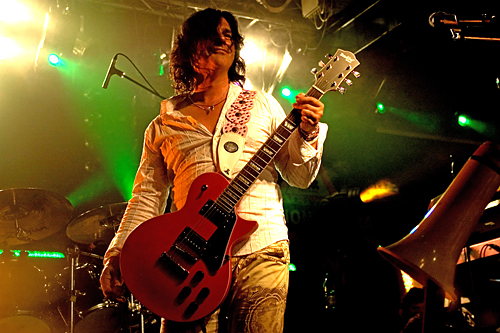
MPc: Yeah. You have to capture the feel.
SH: We were just in that place, yeah, where all five people are thinking to themselves, “Fuck, yeah.” [laughs] “Whoa!” And everybody is following each other and listening to each other. And it’s a fabulous feeling when that happens. And it’s very hard to get that feeling back by starting again and going, “Okay, so what was it called, and how was it going, and what did we do?” In the past we’ve always had to do that, because we used to jam to stereo, just because weeks and weeks of multi-track media would have been too expensive to work with. But since the advent of Pro Tools and the ever-decreasing price of hard drives and ever-increasing capacity of hard drives, it’s now possible to jam straight to multi-track, and then you really can work with whatever might present itself.
MPc: I thought something that was really pretty funny was that Happiness… is a double album, with a lot of music material to figure out, see what fits into it in the right sequence, and so on. Then the single you released, “Whatever is Wrong With You,” is the third song from the end of the second album! [laughs]
SH: Well, yeah, that was the only one, really, that we thought sounded straightforward enough, I suppose, to work in the single format. It’s got the big sing-along chorus, and the chorus itself is a phrase that’s in common usage, which tends to make for a more immediate sort of song. So that one kind of changed itself while it was being written. It seemed to be an obvious choice, really.
MPc: Actually it’s funny, because after I said that it just occurred to me that I discovered you guys and fell in love with Marillion when I first heard “Hooks in You” on the radio back in 1989. And looking back, it’s like, “Oh, you know what? That was way down in the last third of that album!”
SH: I guess so, yeah. We’re really not a singles band. [laughs]
MPc: No! [laughs]
SH: We’re kind of so separate from the music business and the constraints of the music business, that rigid framework that the music business has, that really without a hit single everything is a waste of time. But, I mean, I think that’s the basic premise, isn’t it, of the music business? If there isn’t a hit single, what’s the point?
I signed to CBS, which became Sony Music, years ago. And that was absolutely their take on all of it — anything they were going to pay to have recorded. If there weren’t three hit singles on an album, there was no point. And I can understand that, because you need not just one hit but a couple of follow-ups and all of that to really break an artist worldwide.
And then you need to break an artist worldwide to justify the sheer cost of developing an artist and recording an album and all the bullshit that goes with it and paying for the rose petals that somebody’s going to sprinkle in front of them as they come up the red carpet or whatever it is. And nobody does that better than Sony and the major labels. But we can have nothing to do with that. We’re the opposite of that.
For us it’s all about the art, and the creative process is so ultimately uncompromising that most major record label A&R men would just throw their hands up in horror at our process and at our outlook. And they just wouldn’t get it. And that became increasingly a problem during the latter days with EMI, that they just didn’t really get... when we gave them Brave, they just didn’t get it. We gave them a piece of art, and what they really wanted was something like Holidays in Eden but with more hits, I suppose. And that was the point where EMI began to lose interest and, paradoxically, where our fan base started to get really excited. [laughs]
CD Two is more like the kind of albums other people make.
MPc: I haven’t even asked you specifically about your thoughts on the feeling of Happiness is the Road in general. Unfortunately, the advanced copy that I was sent doesn’t have the lyrics.
SH: Oh, what a shame. Go and check ‘em out [on our website] because you’re missing half of the story!
MPc: I know! We need to know what’s going on in there. So where are you coming from on the new record?
SH: Where I am coming from? Well, it’s not really a double album. What it is is two albums fastened together by packaging and not much else, or fastened together by the period of time they were written in, I suppose, and not much else. They don’t have much more in common than that conceptually, anyway.
CD One, actually, as it grew, became a journey. It became a concept album. And what I’m really trying to get to with that whole thing… it’s essentially about the meaning of life. So I’ve taken on trying to get into the meaning of life on that CD. I’m not a young man anymore. I’m pushing 50, and I’ve learned a lot in my 50 years. And I figured I’d share what I know with everybody. But CD One is really the journey of life: What’s life about? What are we doing here? What is it all for? What can make us happy? What should we be focusing on? What is the world like? Why is it like it is? and what’s wrong with the world? How can we save the world before we destroy it? So all of those themes together make up CD One.
I went to see a doctor on the last tour in the Netherlands because I was having big problems in my head and I was close to... well, I was very emotionally stressed. So I was very on-the-edge anyway. I’d had a lot of stuff going on in my life — my marriage fell to bits, and the death of my father, all of those things. And I was beating myself up over not being able to live with my children. And also I was really kind of neglecting myself. I wasn’t really eating. I was living more or less on Beck’s beer and not much in the way of solid food, whilst sleeping on a bus and screaming my head off for two and a half hours a night. And my body started to rebel, and I got ill, and I had to keep on the road. Even sometimes on the show days I was having surgery! They were trying to keep me in one piece.
And I went to see a doctor, and he was a surgeon, and he put some stitches in me. And then after that he held his hands over my stomach, and he performed some kind of like Reiki healing on me. And he began to cry. Tears began to pour down his face.
And I was watching this, and afterward he said to me, “You’re in immense pain, and you’re carrying a lot of guilt and regret. And your pain made me cry.” He said, “Those are your tears. They’re not mine.” And he said, “I’m going to write you a prescription.” So he took out his prescription pad, and he wrote the name of a book on the prescription: The Power of Now, by Eckhart Tolle. And he said, “You should read this; it will make you better.” [laughs]
So he tore it off the prescription pad, this Dutch guy. And I bought the book and read it. And interestingly enough, what was in the book was… everything in the book really, I already knew it. I felt it instinctively. So it really knocked me over, because everything it was saying was what I already knew in my bones. I’d just never really had the feelings crystallized quite into words and been given a framework.
Essentially the book is about the fact that our minds control us now. And we all feel that we are our minds. And we’re not. We’re not our minds. We’re a being. We’re a living being. And our mind is actually a tool like our hands and our fingers and our toes and our legs. And instead of using our minds to do what they can do, which is massively wide ranging, we get into this thing where, particularly in the West, we identify with our minds totally. And our minds control us all the time. And maybe that it what forces us to obsess on the future and all the past whilst never really looking at and celebrating the present moment. And that’s a kind of insanity because the past plainly doesn’t exist. It’s still going on in the mind. It’s a bunch of memories. And the future doesn’t exist, because it hasn’t happened, and it can be anything. And so to exist in the present moment with all the baggage of your past or by worrying about where you’re going or what’s going to happen, is plainly insane.
But if you spend your time re-living inside those worries and don’t actually think, Well, have I got a problem right now? Right this moment? Right this second?... The answer is never always No, that you haven’t got a problem in the present moment, because you can always fake something in the present moment. So no good worrying about 10 years down the line, or one year, or even next week. You can prepare for it, but don’t obsess on it and don’t make your life a misery with it.
CD Two, on the other hand, is simply a collection of the songs we were writing that have nothing to do with that. So anything that didn’t fit on CD One went on CD Two. So CD One was a journey. It’s a concept album. Call it what you want to call it. Maybe “concept album” is not a cool thing to call something; I don’t know. But that’s essentially what it is. And a rose by any other name is still a rose. And CD Two is more like the kind of albums other people make.
MPc: Only better, of course!
SH: [laughs] Well, you know, I’m glad you think so.
MPc: It seems to me that you have more vocal harmonies throughout Happiness Is The Road than on any other Marillion albums.
SH: That is true. We had a bit of a Beach Boys thing going on, and the words were happening quite naturally during the jams here and there. The title song, “Essence,” especially just had moments. There’s a drop right in the middle of it that just kind of reminded me of them, actually. And so we just kind of took that to its logical conclusion, put the little bells on and wired up the vocals.
Pete Trewavas, our bass player, kept bursting through the door every evening with vocal arrangements and harmonies that he put together at home with his own Pro Tools rig and said, “What about this? What about this?” So I would sing them, he would sing them, and we would incorporate them into the thing. So I think it is a bit more ... there’s more of a kind of barbershop aspect to it than our other records.
MPc: Did you still record with a Beta 58 on your voice like with previous records?
SH: No. I did most of this one with a Neumann. I’m damned if I know what any of them are called. I don’t know if I’ll use it live on the tour or whether I’ll go back to a 58. But it was really all done on there. I mean, we bought a lot of expensive microphones and these big condenser things, but in the end kept going back to that one.
MPc: I still remember from our last big interview that we did, in your words, “Those pretty mics don’t work for me.”
SH: They don’t, to be honest, because I have a lot of upper mid peaks in the tone of my voice that anything… if it’s too present and too airy it just tends to thin me out a bit too much. So I need something a bit more standard rock ‘n roll, I think.

